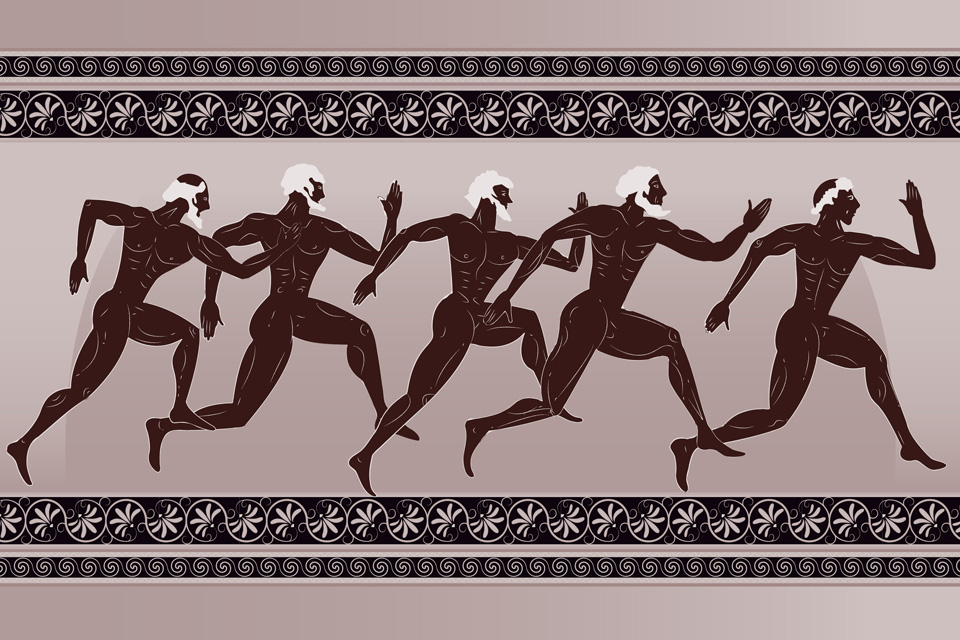The Olympic Games were born in ancient Greece, many, many centuries ago, before Christ. There is, sadly, no authentic record of what it was like, but we can read the legends that immerse us in the lives of the gods and the mighty of this world. Of course these are only versions, but how beautiful and poetic they are!
Some scholars believe that this legend has the greatest right to be considered plausible. The words in the title were the impetus for the origin of the Olympics. They were addressed to the Oracle of Delphi by Hithites, king of Ilida. It was a small country, weary under the weight of continual wars and raids, and so Iphitus decided to ask the Oracle for advice on how to save his people. No one questioned the soothsayer’s advice and the king was able to convince his neighbour the king of Sparta, as well as the rulers of the other rival states, to stop the wars. As a sign of reconciliation, as recommended by the oracle, the Games were arranged to be held in the holy city of Olympia every four years. This was in 884 BC. From that time onwards soldiers put aside their swords and armour and marched to Olympia at the time of the clash.

A feast that united all
The mesmerizing spectacle – the strength and beauty of the athletes’ bodies, their agility and their athletic prowess – made the warring parties forget their quarrels and feuds. The festivities thus took on a national character, which at least temporarily united the whole of Greece, then a fragmented state. Somewhat later they started holding the Games not just once every four years, but on a fixed date: between the harvest and the grape harvest. Yes, at first the competition took only a day, but it was colourful, full of various rituals, religious ceremonies and, of course, competitions. Soon the festivities were extended to five days, and then to a month. Four years was the Greek year, called the Olympics.
Years, decades, centuries passed and the Olympics grew from a local event to become the most important event in ancient Greece. All the inhabitants from small to large gathered for the Olympics, not to mention the cities-colonies.
What happened at the Olympics?
Victory at the Games was a matter of honour and, as they say today, represented the highest prestige. It was not just the victorious athlete who was celebrated, but also the place he or she came from, his or her family and teachers. Famous figures such as Nero and Alexander the Great were valued for their participation in the Olympics. They competed in chariot races, running and other sports. From the 2nd century B.C. onwards not only Greeks started to take part in the Games, but also the Romans, because Hellas was subjugated to Rome. The Greek culture and sports started to decline, and the Olympics gradually turned from a major event into an entertainment show. The spectators were no longer amused by the thrill of the games, but rather by the positive emotions aroused by the athletes themselves.
After the forcible introduction of Christianity in 394 AD, during the struggle against paganism, the Olympic Games were outlawed as a remnant of that “pernicious” current. Simply put, they were banned and forgotten for centuries. It was not until the century before last that this great sporting event received a second birth.
